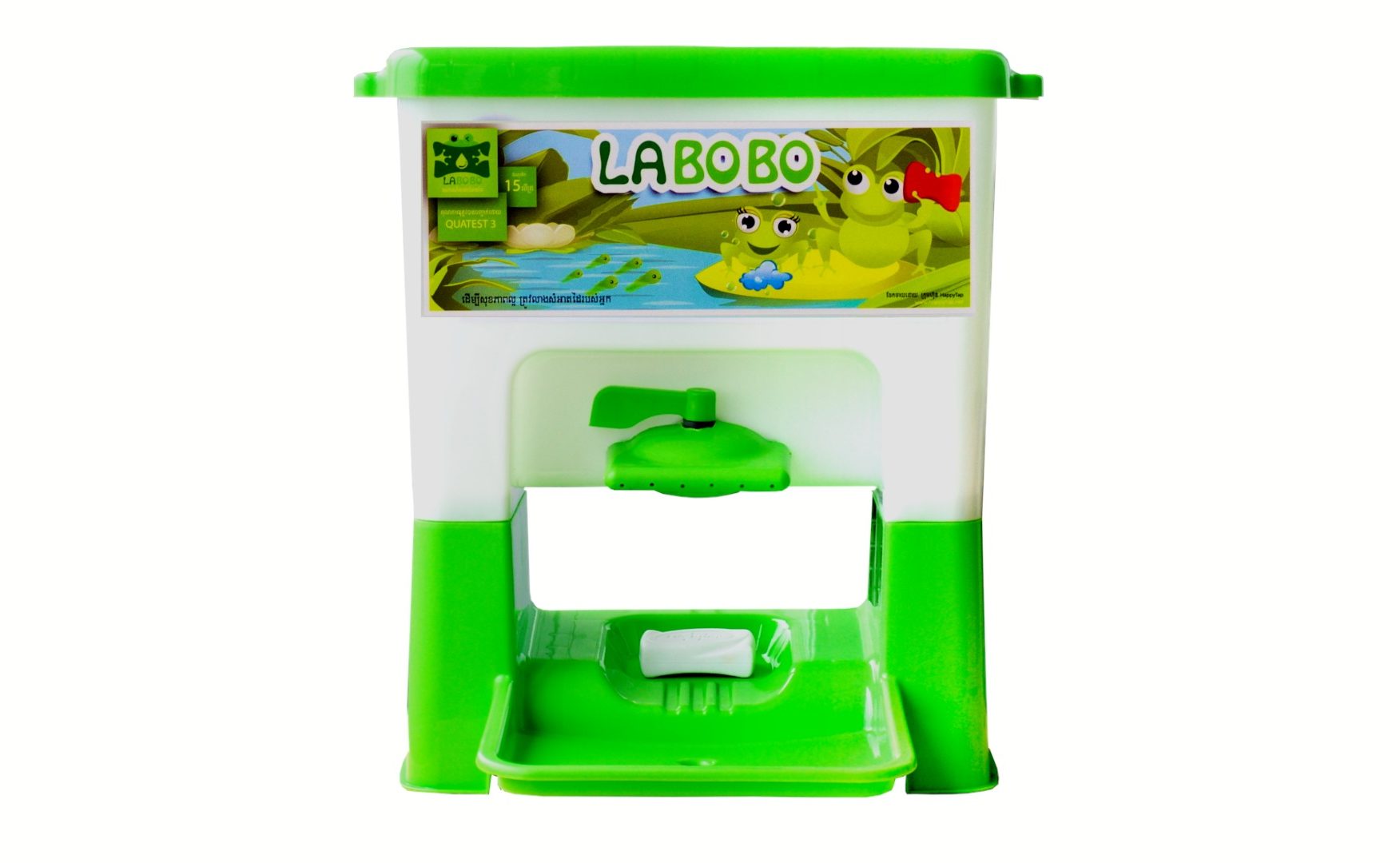WASH for Life grant for HappyTap highlighted in Sanitation Updates
May 24,2013
By Sanitation Updates
The HappyTap, a low-cost handwashing device for the Vietnamese market, is one of seven innovations to receive a grant from the WASH for Life Partnership. This US$ 17 million initiative is co-funded by the Bill & Melinda Gates Foundation and USAID’s Development Innovation Ventures (DIV).
In 2010, with USAID support, the WaterSHED program teamed with the Water and Sanitation Program (WSP) to develop and market a new handwashing device. The design came from IDEO.org, which itself has received a WASH for Life grant for Clean Kumasi, an digitally-supported approach to Community-Led Total Sanitation (CLTS). Together with Water and Sanitation for the Urban Poor (WSUP), IDEO.org is working to combat open defecation in Kumasi, Ghana using mobile phones and open-source mapping.
A third grant went to Bear Valley Ventures Ltd. to test new anti-microbial hand cleaning products, based on ByotrolTM, for poor urban families in India who have limited access to water. For this purpose Bear Valley has set up Clean Hands Inc, a joint venture with Val Curtis of the London School of Hygiene and Tropical Medicine and Helen Trevaskis, an innovation and behavior change consultant.
Social enterprise Sanergy has won a second (Stage Two) DIV grant to expand its ecosan approach in Kenya’s slums, which involves building household toilets and converting the waste into fertilizers for sale to farmers. With their Stage Two funding, Sanergy will scale to 700 latrines and provide hygienic sanitation to 70,000 slum residents.
The sixth grantee and another Stage Two recipient, KickStart International, tests new innovations in microfinancing to increase technology adoption of its “MoneyMaker” irrigation pumps.
The seventh project and recipent of the first Stage Three grant in the WASH for Life Partnership is Innovations for Poverty Action for its Dispensers for Safe Water programme . The programme installs point-source chlorine dispensers in East Africa, which are proven to increase uptake rates of treated drinking water and prevent its recontamination. The grant will allow scaling-up of the programme from 632,000 people with access to clean water to more than 5 million people at a cost of only about US$ 0.50 per person per year.

